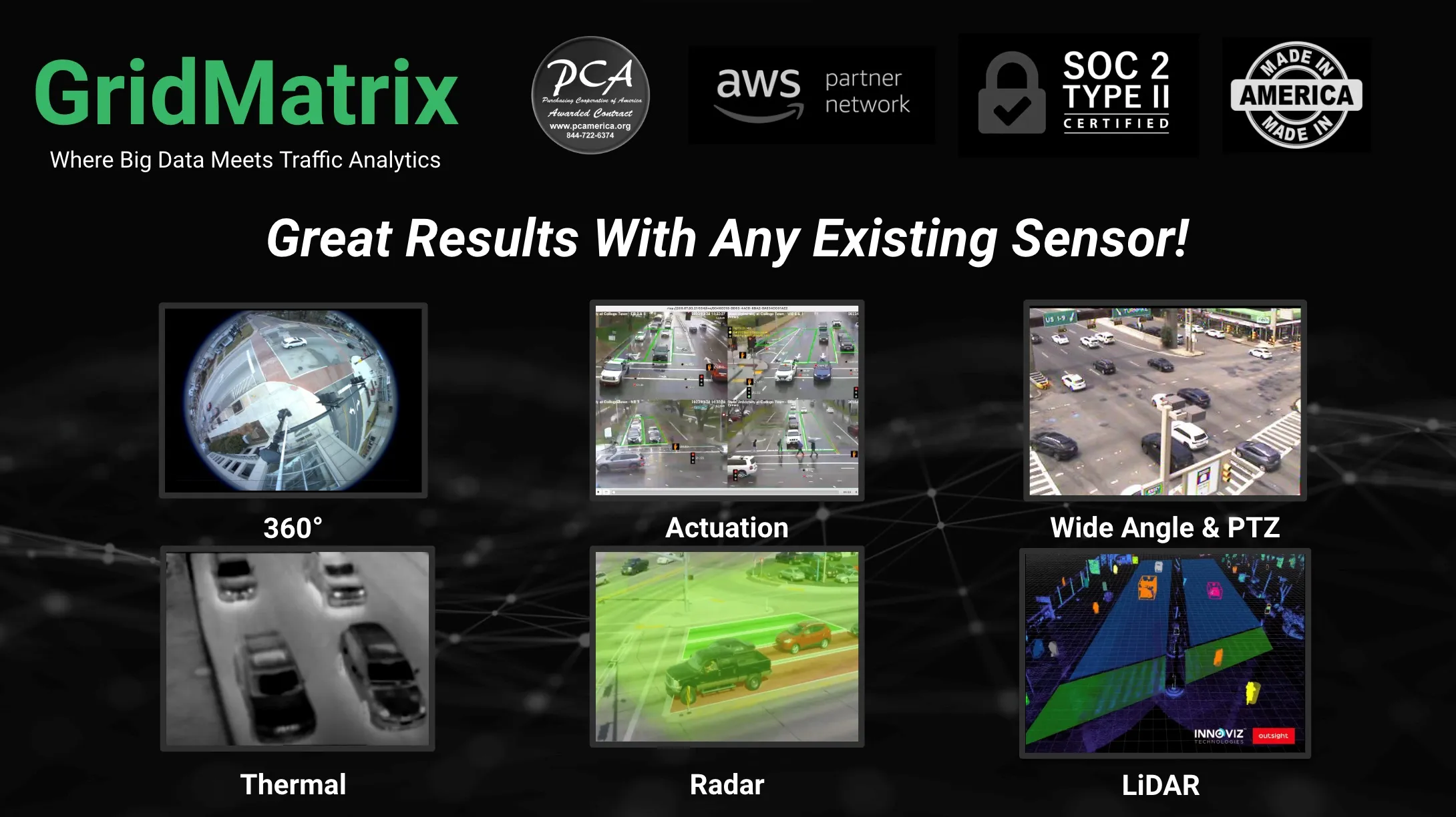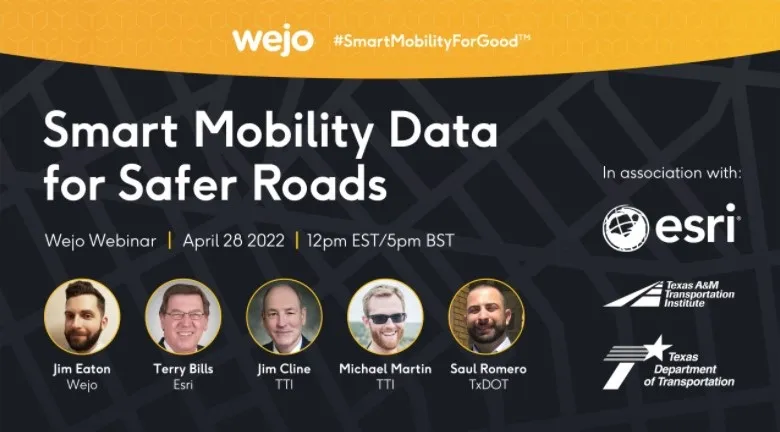
GridMatrix’s breakthrough software platform for multimodal data collection and analytics is revolutionising transportation planning and decision making across the US.
Powered by artificial intelligence and combining the latest advances in cloud computing, machine learning and advanced sensing, GridMatrix’s platform is deployed in New York City on the world’s busiest bridges and tunnels, trusted by multiple state departments of transportation, and in a fast-growing number of American towns and cities.
GridMatrix is built to maximise the power of existing infrastructure with no new hardware, sensors or field maintenance required to deploy. The software platform integrates feeds from a variety of edge sensors, such as cameras, radar, loops and even Lidar to produce metrics on congestion, emissions, safety and signal performance.
All data is delivered 24/7/365 and in real time with less than one second of latency and >95% accuracy. GridMatrix’s software platform will even work with multiple different sensor types at once, and from different manufacturers. Deployments take 1-2 weeks to reach city-wide scale. Every GridMatrix deployment includes data for multiple classes of vehicle and pedestrian in four core areas: Congestion, Signal Performance, Emissions and Safety.
The Congestion module includes all data routinely collected during a traditional traffic study, including counts, turning movements, and flow rates. The Signal Performance module provides ATSPM metrics including Purdue performance measures. The Emissions module displays fine-grained data on CO2 emissions and gas consumption. The Safety module includes data on near misses using surrogate safety measures (PET & TTC), automated incident detection (AID), and compliance measures such as red-light-running to provide a comprehensive Vision Zero solution. GridMatrix is proudly an American company founded and headquartered in San Francisco.
SOC2-certified, it adheres to the highest standards of data handling and cybersecurity. A privacy-first company, GridMatrix records no sensor data or PII information. GridMatrix is available to purchase directly, via the Purchasing Cooperative of America (PCA), and via the Amazon Web Services Marketplace.
To learn more about GridMatrix, visit www.gridmatrix.com or reach out to vice president of business development Austin Wilson at [email protected]
Content produced in association with GridMatrix










